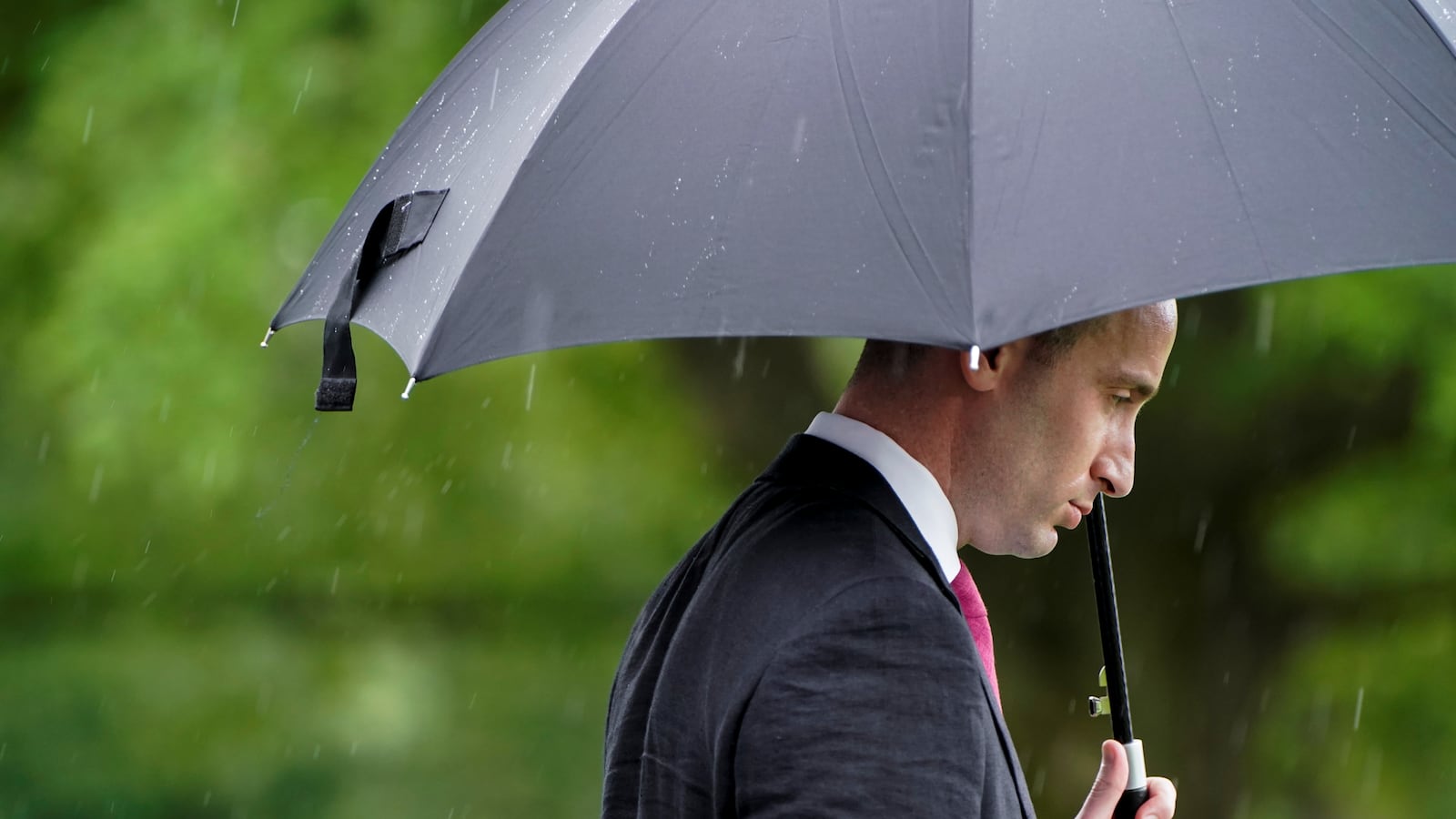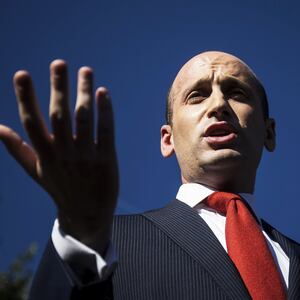Stephen Miller has been targeting students who seem foreign to him since he was a teenager in Santa Monica, California: ordering classmates to speak English, attacking school efforts to help students of color, and penning articles about the alleged dangers of diversity. “The nation of E Pluribus Unum threatens to be fractured across ethnic lines by racial animus and divisive multiculturalism,” he wrote in college.
From the West Wing as Trump’s senior adviser on immigration, Miller has repeatedly pushed for actions that punished young foreigners and had little, if anything, to do with national security: ending protections for those brought to the U.S. as children, separating migrant kids from asylum-seeking parents, jailing Central American teenagers and deporting young people fleeing persecution.
Given Miller’s style, it was no surprise that the administration took aim at the more than one million international students who take classes in the U.S. and pour billions of dollars into the economy every year while culturally enriching the country. On Tuesday, the government revoked its plan—hatched by Immigration and Customs Enforcement July 6—after lawsuits and pushback from hundreds of prestigious colleges and universities. The move would have stripped international students of their visas if their classes went fully online this fall because of the coronavirus. It would have forced talented young people to find a way home in the middle of the global pandemic. But despite the government’s back-tracking, it’s difficult for international students to breathe a sigh of relief. Their limbo is far from over, and more plans targeting them are in the works.
Miller’s allies at Homeland Security are working on a regulation that would limit how long international students can stay in the U.S. They’re also contemplating cuts to Optional Practical Training, a work-study program that allows international students to obtain temporary employment in areas related to their study—viewed by some on the right as a “de facto shadow H-1B program,” a path to permanent employment for talented young foreigners whom they believe steal jobs from Americans.
Dozens of readers of the right-wing blog Breitbart expressed disappointment in the government’s change of heart: “Typical Trump. Make a big headline and then back off,” commented one user. Another user wrote: “All foreign students should have been deported at the beginning of the coronavirus pandemic.”
Consequently, international students still feel unwelcome, lonely, and afraid as they contemplate their precarious positions in the middle of a pandemic far from family.
Ilaria Quentin, a 20-year-old international student majoring in public relations at the University of Southern California, was relieved to learn officials had changed their mind about taking away her visa if a local surge in COVID-19 cases pushed her courses online. If she had been forced to leave, she wasn’t sure where she would go. Her home country, Argentina, is on lockdown. She’s concerned about the fate of Optional Practical Training, one of the reasons she chose to study in the U.S. “If Trump gets re-elected, he could completely take out the OPT program,” she said. Her job prospects in the U.S. could vanish. “You graduate, and that’s it—which defeats the purpose of receiving an education and paying almost half a million dollars to be here.”
Many people across the country are celebrating the administration’s decision to back down on punishing international students for online-only instruction this fall. At the University of San Diego, which has about seven hundred international students, administrators shed tears of happiness Tuesday when they heard the news. “There’s so many things to be worried about right now—and now [our students] don’t have to worry about their visa status,” said Denise Dimon, associate provost for international affairs at the university. She said the move would have hurt not only international students but all students. International students expand the horizons of domestic students, broadening their professional networks and enhancing their personal lives.
Karanjot Kaur is one of those students who is nurturing friendships and other connections in America. The 22-year-old came from India when she was 17 to study cognitive science at the University of California, San Diego. “I feel like I belong here,” she said. “I’m bringing money from my country, contributing to the economy, contributing to research. I pay three times more tuition than in-state students.”
Kaur has a one-year apartment lease, and wasn’t sure what she was going to do if she was forced out. She has been working as a research assistant, investigating children’s cognition. But Kaur is worried about steps the U.S. is contemplating to strangle opportunities for international students. It was hard for her to rejoice about the government’s decision to rescind its attack on visas.
In a way, the damage was already done—the fears, the anxiety, the uncertainty on top of the pandemic nightmare. She feels disposable. “This is just cruel,” Karanjot said. “At a time when we are so far away from our homes, dealing with this pandemic alone in another country, just to add on top of that the stress of deportation—it was just cruel. There’s no logic to it.”
The illogic of Trump’s years-long assault on young foreigners lies in the delusional white supremacist novel that Miller recommended to Breitbart in 2015. The Camp of the Saints preaches hate against brown foreigners and their “monster children,” who destroy the white world simply by arriving in it. “You and your pity!” one of the racist novel’s heroes tells a priest who welcomes refugees. “Your damned, obnoxious, detestable pity! Call it what you please: world brotherhood, charity, conscience … all I see is contempt for yourselves and all you stand for.” The narrator, a stand-in for the white supremacist author Jean Raspail, expresses disgust for foreigners of color and their domestic white allies, all the while promoting the false conspiracy theory of white genocide, used by white terrorists to justify their racist massacres.
Miller has had to balance his hostility toward young foreigners and relationships with restrictionists with his need to keep the peace with more business-friendly advisers like Jared Kushner. But Trump is increasingly leaning on Miller’s apocalyptic demonization to distract from his leadership failures in response to COVID-19. And Miller has historically encouraged his boss’s harshest impulses, as I report in my forthcoming book Hatemonger.
For example, Trump didn’t always want to end Obama’s DACA program—“Does anybody really want to throw out good, educated, and accomplished young people … ?” Trump tweeted after signing a memo to terminate the program in 2017—but Miller had been attacking DACA for years, helping craft statements for Alabama Republican Senator Jeff Sessions attacking the program as “mass backdoor amnesty” in 2012. (Sessions, who on Tuesday night lost the GOP primary runoff for his previous Senate seat to former football coach Tommy Tuberville—who Trump endorsed while bashing his former attorney general—has one true lasting legacy: lending Miller to Trump five years ago).
The fate of the international students may ultimately lie in the hands of Trump’s most divisive adviser, who has shown no signs of giving up his lifelong battle against youths from abroad. Miller’s restrictionist agenda has always been classist; young foreigners who can afford U.S. tuition are not and never have been his priority. Nevertheless, their sense of security and belonging has already been taken from them.








